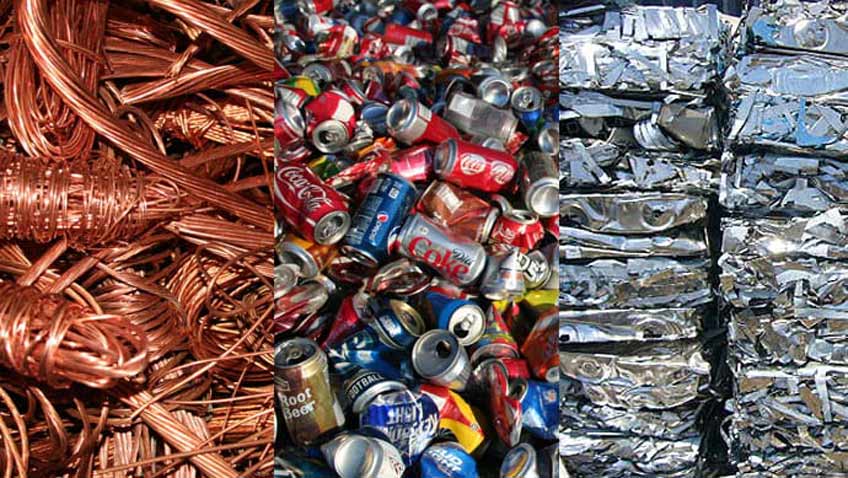Knowing your brass from your bronze is a huge advantage when you’re recycling metal. After all, pre-sorting metal is advantageous—scrap metal yards typically pay more for metal that’s been arranged by type.
Below, you’ll find a primer on the different types most frequently accepted by scrap metal recycling centers. This way, you can get your scrap separated and earn money for your metal, all while doing something good for the environment!
Copper is a recycler’s prized metal. It’s found in all kinds of building materials, from gutters to wires, and is one of the most valuable materials you can drag into the scrap yard. Why is that? Only 12% of the world’s natural metal supply has been mined—so it’s relatively rare, from a scrapper’s perspective. And it’s one of the most easy-to-recycle materials around.
All copper is precious, but some grades are worth more than others. There’s bare brite copper—shiny copper no thinner than 16 gauge that hasn’t been fashioned into pipes. And then there’s copper #1 and copper #2, and the big difference between them is how clean they are. So if possible, strip your wire and clean your pipes before bringing them in!
One of the most common metals around, aluminum can be found in tons of different products. Dishwashers, refrigerators and other appliances are frequent sources of aluminum at the scrap yard, but you can also find it in building materials, household goods and even the lowly soda can. At Gardner Metals, we take all kinds of aluminum—window and door frames, sheet metal, aluminum alloys and yes, even cans!
Aluminum recycling is so efficient that the turnaround for recycled cans can be as little as 60 days. That means that in less than two months, cans dropped off at scrap metal recycling centers can be back on the shelves as a new product. And the process uses 95% less energy than freshly mined aluminum. Now that’s an environmental win!
Brass and bronze are both copper alloys. Most scrap yards take red brass—or gunmetal, as it’s also known—which is actually a type of bronze that’s composed of copper, tin and zinc. Gunmetal earned its name from its original use: making firearms. Nowadays guns are typically made from steel, but you can still find red brass in pipes, valves and plumbing fixtures.
Then there’s yellow brass, an alloy of copper and zinc, which most scrap metal recycling centers will happily take off your hands. Iconic for its use in musical instruments like horns and bells, yellow brass is also in heavy rotation in door hinges, handles and locks, as well as plumbing pipes and fixtures and electrical components. Brass is a heavy metal that can add up fast on the scale. And because it’s non-ferrous (does not contain iron), it will fetch you high prices at the scrap yard!
You’re probably already familiar with stainless steel—in fact, chances are you have some stainless steel objects and fixtures in your kitchen or bathroom right now. Stainless is the most valuable type of steel since it doesn’t rust like untreated steel. That’s because it’s actually a steel alloy. A little bit of chromium is added during the production process to give it its rust resistance.
Stainless steel comes in a wide variety of grades and finishes, which can affect the value of the steel when it comes in for trade. Because of this, it’s sometimes confused with aluminum, which has a much lower market rate. Try testing your stainless steel products with a magnet to identify whether they include iron—if the magnet sticks, you have aluminum, not stainless steel!
Cast iron is a heavy, black metal that’s incredibly wear resistant. That makes it an ideal material for sturdy products like gates, rails and stoves. Tin, on the other hand, is a soft, malleable metal commonly used for electrical and plumbing connections and food packaging. Again, the best way to detect iron is to give it the magnet test—if it sticks, you’ve got iron!
Other Metals
Of course, scrap metal recycling dealers will take other metals as well. For instance, at Gardner Metals, we’ll happily accept exotic metals like hastelloy, inconel, monel, nitronic, molybdenum, titanium and tantalum. These metals have high temperature points, which gives them their strength. Thus they’re often used in specialized industrial products and computer parts.
Need more help identifying metals? Contact us for your free quote, and get your metal recycling experience off the ground today!

